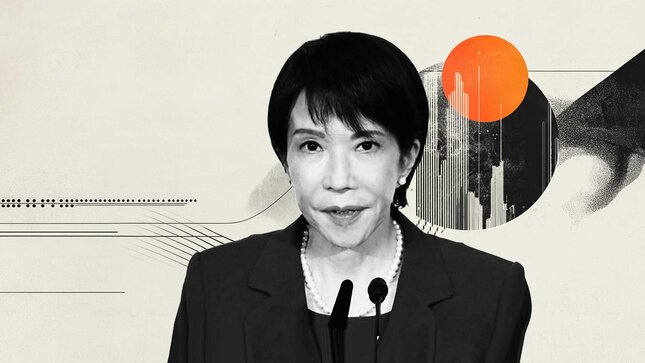Generation Why?
The term “Millennial” has received a great deal of circulation in recent years. Although there is no precise definition of the Millennial generation, a range of birth years from the early 1980s to the early 2000s is typically used to describe this cohort. For our purposes, we define Millennials as anyone currently aged 16-34.With a population of 85 million, Millennials are the largest generation in U.S. history, 10 million more than the Baby Boomer generation. In addition to accounting for a significant share of the total population of this country, Millennials comprise roughly 35 percent of the U.S. working age population, defined as the total population of people aged 16 and over (top chart). With many of them just starting their careers, the group will likely play a key role in shaping the economic landscape in the coming years.
What the Future Holds
Millennials’ economic situation was heavily influenced by the Great Recession, which for many people in this cohort was their first taste of economic hardship. Worse yet, many Millennials graduated school in the midst of the downturn, which will likely have lingering effects on their income and participation in the labor market. According to a Wells Fargo survey of Millennials, the Great Recession taught 80 percent of this group that they have to save now to survive future economic problems.1 Despite this, we have seen that this cohort is not making significant strides in saving for retirement. This is likely due in part to the oft-mentioned student debt burdens this generation has been saddled with; the survey indicated that Millennials’ main financial concern after day-to-day expenses was student debt. This has significant implications, as student debt burdens have weighed on Millennials’ ability to make big ticket purchases, such as buying a home or investing in financial assets.Student debt is a double-edged sword, however, as more Millennials aged 25-34 have a Bachelor’s degree or higher than the general populace aged 25 and over (middle chart). This trend emerged well ahead of the downturn and should ultimately benefit this cohort and the broader economy. Data show that increased educational attainment leads to better wages, higher labor force participation and a greater chance of finding employment (bottom chart). Thus, while debt burdens will weigh on net worth and spending power in the short term, the hope is that their higher educational attainment will start to pay increased dividends in the longer term. As their financial situation improves, we expect more Millennials will begin to purchase homes and invest in the stock market, giving a boost to asset values in the broader economy.
In future installments of this series, we will dive deeper into a multitude of aspects of the economic situation of Millennials—stay tuned for more.
Read part II and part III of Millennials in the Economy
Editors’ Picks

AUD/USD gets ready to punch through 0.7100
The intense sell-off in the Greenback underpins the solid performance of the Aussie Dollar on Monday, motivating AUD/USD to add to recent gains while challenging the key 0.7100 barrier, or fresh YTD highs, at the same time.

EUR/USD extends its optimism past 1.1900
EUR/USD retains a firm underlying bid, surpassing the 1.1900 mark as the NA session draws to a close on Monday. The pair’s persistent uptrend comes as the US Dollar remains on the defensive, with traders staying cautious ahead of upcoming US NFP prints and CPI data.

Gold picks up pace, retargets $5,100
Gold gathers fresh steam, challenging daily highs en route to the $5,100 mark per troy ounce in the latter part of Monday’s session. The precious metal finds support from fresh signs of continued buying by the PBoC, while expectations that the Fed could lean more dovish also collaborate with the uptick.

XRP struggles around $1.40 despite institutional inflows
Ripple (XRP) is extending its intraday decline to around $1.40 at the time of writing on Monday amid growing pressure from the retail market and risk-off sentiment that continues to keep investors on the sidelines.

Japanese PM Takaichi nabs unprecedented victory – US data eyed this week
I do not think I would be exaggerating to say that Japanese Prime Minister Sanae Takaichi’s snap general election gamble paid off over the weekend – and then some. This secured the Liberal Democratic Party (LDP) an unprecedented mandate just three months into her tenure.
RECOMMENDED LESSONS
Making money in forex is easy if you know how the bankers trade!
I’m often mystified in my educational forex articles why so many traders struggle to make consistent money out of forex trading. The answer has more to do with what they don’t know than what they do know. After working in investment banks for 20 years many of which were as a Chief trader its second knowledge how to extract cash out of the market.
5 Forex News Events You Need To Know
In the fast moving world of currency markets where huge moves can seemingly come from nowhere, it is extremely important for new traders to learn about the various economic indicators and forex news events and releases that shape the markets. Indeed, quickly getting a handle on which data to look out for, what it means, and how to trade it can see new traders quickly become far more profitable and sets up the road to long term success.
Top 10 Chart Patterns Every Trader Should Know
Chart patterns are one of the most effective trading tools for a trader. They are pure price-action, and form on the basis of underlying buying and selling pressure. Chart patterns have a proven track-record, and traders use them to identify continuation or reversal signals, to open positions and identify price targets.
7 Ways to Avoid Forex Scams
The forex industry is recently seeing more and more scams. Here are 7 ways to avoid losing your money in such scams: Forex scams are becoming frequent. Michael Greenberg reports on luxurious expenses, including a submarine bought from the money taken from forex traders. Here’s another report of a forex fraud. So, how can we avoid falling in such forex scams?
What Are the 10 Fatal Mistakes Traders Make
Trading is exciting. Trading is hard. Trading is extremely hard. Some say that it takes more than 10,000 hours to master. Others believe that trading is the way to quick riches. They might be both wrong. What is important to know that no matter how experienced you are, mistakes will be part of the trading process.
The challenge: Timing the market and trader psychology
Successful trading often comes down to timing – entering and exiting trades at the right moments. Yet timing the market is notoriously difficult, largely because human psychology can derail even the best plans. Two powerful emotions in particular – fear and greed – tend to drive trading decisions off course.


